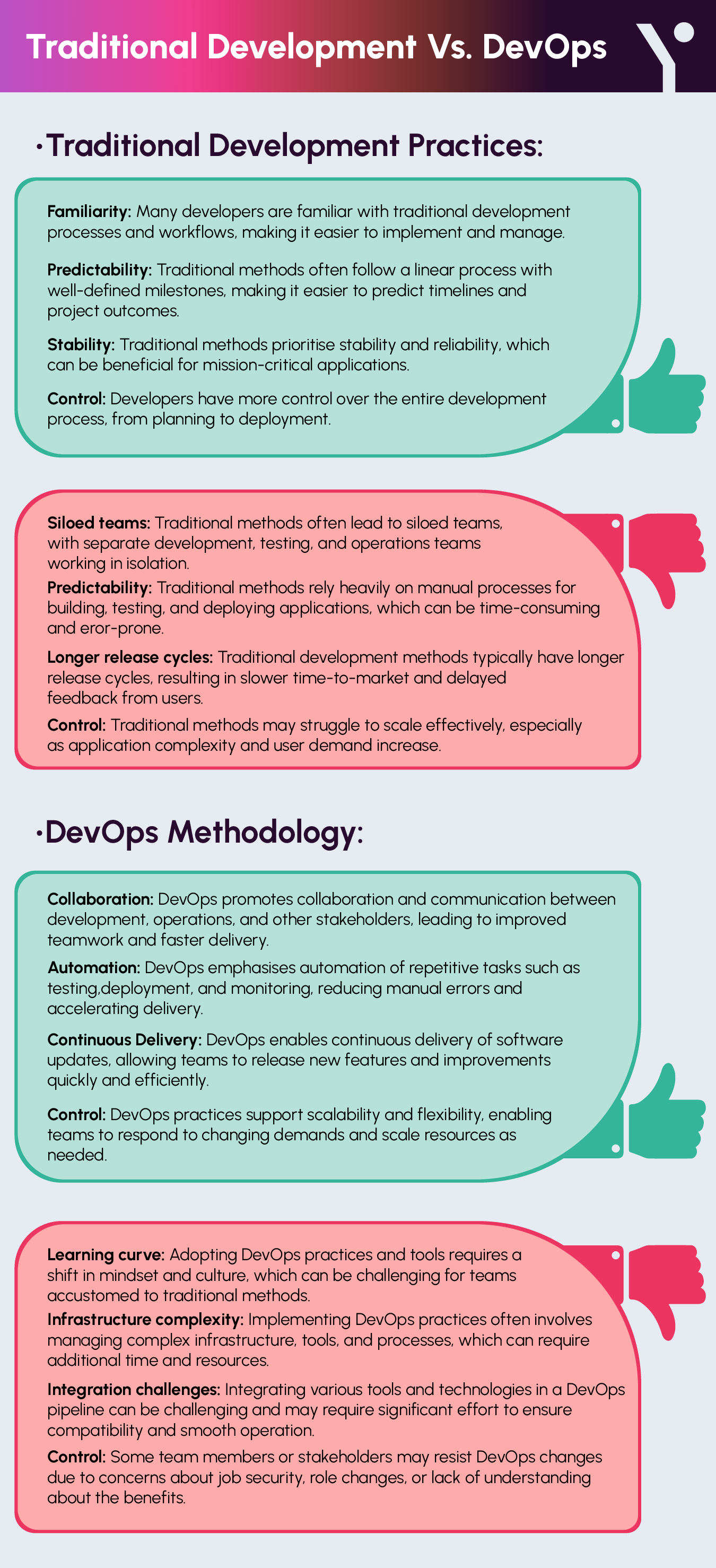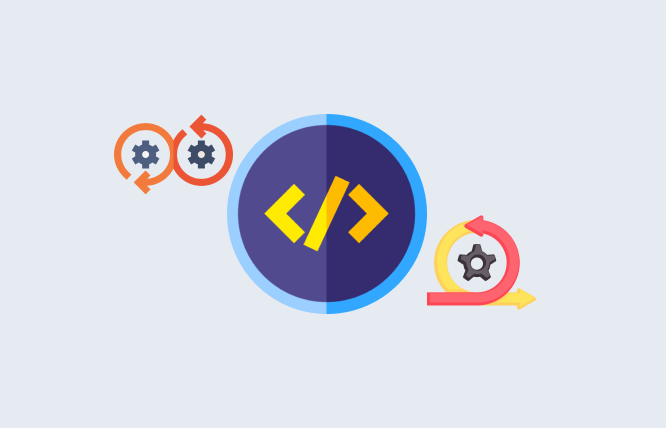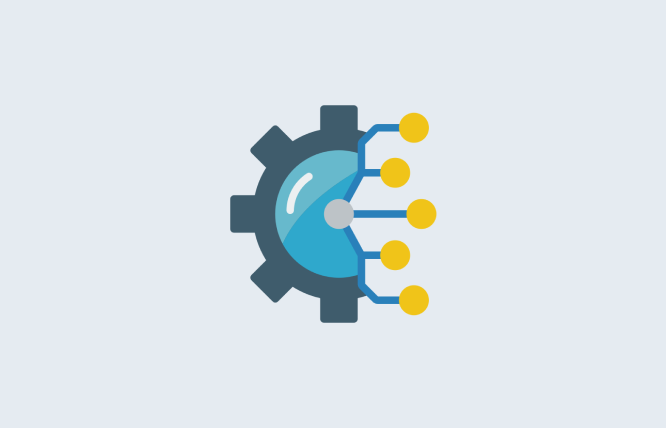Introduction
Businesses all over the world are leveraging DevOps techniques to help them in their web app development lifecycle. In this article we will learn the importance of DevOps in the development lifecycle and how it can benefit your business.
DevOps has grown in popularity within organisations all over the world due to its ability to improve performance and efficiency in various development tasks. According to survey conducted under the developer poll, organisations that are using the DevOps technology have seen a decrease in errors by 60 times, 30 times more development and over 200 times the delivery speed that they had previously.
Experts have backed up DevOps techniques as a great way to improve your organisational processes and minimise the risk of errors. This does not pertain solely to software development, as the DevOps methodology can also be used for web app development.
In this article we will talk about the importance of DevOps and how it can be used to create scalable web applications for your business using DevOps techniques.
What is DevOps and Why Does My Organisation Need it?
DevOps is a software development methodology that emphasises collaboration, communication, integration, automation, and continuous delivery across the entire software development lifecycle (SDLC). It aims to bridge the gap between software development (Dev) and IT operations (Ops) teams, enabling organisations to deliver high-quality software faster and more reliably.
Here’s why your organisation needs DevOps:
Faster Time-to-Market
DevOps practices such as automation, continuous integration, and continuous delivery (CI/CD) enable faster deployment of software updates, features, and bug fixes, allowing your organisation to respond quickly to changing market demands and gain a competitive edge.
Improved Collaboration
DevOps promotes a culture of collaboration and shared responsibility among development, operations, and other stakeholders. By breaking down silos and fostering cross-functional teams, DevOps helps streamline communication, enhance transparency, and drive better alignment towards common goals.
Increased Efficiency
Automation plays a key role in DevOps, automating repetitive tasks, such as testing, deployment, and monitoring. By reducing manual effort and human error, automation improves efficiency, productivity, and overall software quality.
Enhanced Quality
DevOps practices such as continuous testing and monitoring enable earlier detection and resolution of defects, vulnerabilities, and performance issues. By incorporating feedback loops into the development process, DevOps helps ensure that software meets quality standards and customer expectations.
Greater Flexibility and Agility
DevOps enables organisations to adapt to changing requirements and market conditions more effectively. By breaking down monolithic applications into smaller, decoupled components (microservices), DevOps facilitates agility, scalability, and the ability to iterate rapidly.
Improved Reliability and Stability
DevOps practices, such as infrastructure as code (IaC) and configuration management, help ensure consistency and repeatability in deployment environments. By treating infrastructure as code and automating its provisioning and management, DevOps minimises the risk of configuration drift and deployment failures.
Cost Savings
By optimising resource utilisation, reducing waste, and minimising downtime, DevOps can lead to cost savings for organisations. By streamlining processes and eliminating inefficiencies, DevOps helps organisations make better use of their IT resources and maximise return on investment (ROI).
Customer Satisfaction
Ultimately, DevOps aims to deliver value to customers by enabling organisations to deliver high-quality software faster, more frequently, and with fewer defects. By focusing on customer needs and delivering software that meets or exceeds expectations, DevOps helps improve customer satisfaction and loyalty.
DevOps Techniques for Web App Development
DevOps techniques play a crucial role in web application development, enabling teams to streamline processes, improve collaboration, and deliver high-quality software efficiently. Here are some key DevOps techniques for web app development:
Continuous Integration (CI)
CI involves automatically building, testing, and integrating code changes into a shared repository multiple times a day. This practice helps identify integration errors early, allowing teams to address them quickly and maintain a stable codebase.
Continuous Delivery (CD)
CD extends CI by automatically deploying code changes to production-like environments after passing automated tests. This enables teams to deliver new features and updates to users rapidly and reliably, with minimal manual intervention.
Infrastructure as Code (IaC)
IaC involves managing and provisioning infrastructure using code and automation tools. By defining infrastructure configurations in code, teams can create consistent, repeatable environments, reducing manual errors and enabling faster deployment of infrastructure changes.
Configuration Management
Configuration management tools automate the provisioning, configuration, and management of servers and other infrastructure components. By managing configurations centrally and enforcing consistency across environments, teams can improve reliability and reduce deployment-related issues.
Containerisation
Containerisation technologies like Docker allow developers to package applications and their dependencies into lightweight, portable containers. Containers enable consistent deployment across different environments and improve resource utilisation, scalability, and isolation. With the help of a Docker expert consultant, you can take full advantage of containerisation.
Orchestration
Orchestration tools like Kubernetes automate the deployment, scaling, and management of containerised applications. Kubernetes provides features such as service discovery, load balancing, and self-healing, enabling teams to run progressive web apps iOS and serverless web apps, reliably at scale.
Monitoring and Logging
Monitoring and logging tools help teams monitor the performance, availability, and security of web applications in real-time. By collecting and analysing metrics and logs, teams can identify issues proactively, optimise performance, and ensure a positive user experience.
Collaborative Development
DevOps promotes collaboration between development, operations, and other stakeholders throughout the software development lifecycle. By fostering a culture of communication, knowledge sharing, and shared ownership, teams can work together more effectively to deliver value to users.
Conclusion
The DevOps techniques serves as a great way for web app development. Thanks to its ability to improve collaboration, agility and efficiency. While traditional development methods still have its merits, overall, DevOps is constantly evolving and organisations that are looking to fast track their growth, DevOps is becoming a necessity.
If you are looking for a custom web application development company that adopts the DevOps methodology, then FuturByte has you covered. Our team of experts will offer services ranging from Kubernetes consulting services to microservices development services and everything in between. Get a free consultation today!
Frequently Asked Questions
DevOps is a set of practices that combines software development (Dev) and IT operations (Ops) to shorten the systems development life cycle and provide continuous delivery of high-quality software. In web app development, DevOps helps streamline collaboration between development and operations teams, automate workflows, and accelerate the delivery of web applications.
Some key benefits of DevOps in web app development include faster time-to-market, improved collaboration and communication between teams, increased efficiency through automation, enhanced scalability and reliability of web applications, and better alignment with business objectives.
DevOps practices such as continuous integration (CI) and continuous delivery (CD) automate the process of building, testing, and deploying web applications. This results in shorter deployment cycles, reduced risk of errors, and the ability to release updates to production more frequently, leading to faster innovation and responsiveness to user feedback.
Some commonly used tools in DevOps for web app development include version control systems like Git, continuous integration servers like Jenkins or Travis CI, containerisation platforms like Docker, configuration management tools like Ansible or Puppet, and cloud platforms like AWS, Azure, or Google Cloud Platform.
DevOps fosters a culture of collaboration and shared responsibility between development and operations teams. By breaking down silos and promoting cross-functional collaboration, DevOps encourages teams to work together towards common goals, resulting in faster delivery of high-quality web applications.
Have questions or feedback?
Get in touch with us and we‘l get back to you and help as soon as we can!






